Hyundai i30 vs Vauxhall Astra Sports Tourer – Differences & prices compared
Everyday use, family trips or long-distance drives – here’s where the differences show.
Discover whether Hyundai i30 or Vauxhall Astra Sports Tourer fits your lifestyle better.
Costs and Efficiency:
Price and efficiency are key factors when choosing a car – and this is often where the real differences emerge.
Hyundai i30 has a to a small extent advantage in terms of price – it starts at 24000 £, while the Vauxhall Astra Sports Tourer costs 26500 £. That’s a price difference of around 2486 £.
Fuel consumption also shows a difference: Vauxhall Astra Sports Tourer manages with 2.30 L and is therefore convincingly more efficient than the Hyundai i30 with 5.70 L. The difference is about 3.40 L per 100 km.
Engine and Performance:
Under the bonnet, it becomes clear which model is tuned for sportiness and which one takes the lead when you hit the accelerator.
When it comes to engine power, the Vauxhall Astra Sports Tourer has a distinct edge – offering 225 HP compared to 140 HP. That’s roughly 85 HP more horsepower.
In acceleration from 0 to 100 km/h, the Vauxhall Astra Sports Tourer is distinct quicker – completing the sprint in 7.60 s, while the Hyundai i30 takes 9.60 s. That’s about 2 s faster.
In terms of top speed, the Vauxhall Astra Sports Tourer performs a bit better – reaching 235 km/h, while the Hyundai i30 tops out at 197 km/h. The difference is around 38 km/h.
There’s also a difference in torque: Vauxhall Astra Sports Tourer pulls distinct stronger with 360 Nm compared to 253 Nm. That’s about 107 Nm difference.
Space and Everyday Use:
Beyond pure performance, interior space and usability matter most in daily life. This is where you see which car is more practical and versatile.
Both vehicles offer seating for 5 people.
In curb weight, Hyundai i30 is barely noticeable lighter – 1291 kg compared to 1394 kg. The difference is around 103 kg.
In terms of boot space, the Vauxhall Astra Sports Tourer offers evident more room – 597 L compared to 395 L. That’s a difference of about 202 L.
In maximum load capacity, the Vauxhall Astra Sports Tourer performs noticeable better – up to 1634 L, which is about 333 L more than the Hyundai i30.
When it comes to payload, Hyundai i30 barely noticeable takes the win – 509 kg compared to 497 kg. That’s a difference of about 12 kg.
Who wins the race?
The Vauxhall Astra Sports Tourer proves to be leaves the rival little chance and therefore becomes our DriveDuel Champion!
Vauxhall Astra Sports Tourer is the better all-rounder in this comparison.
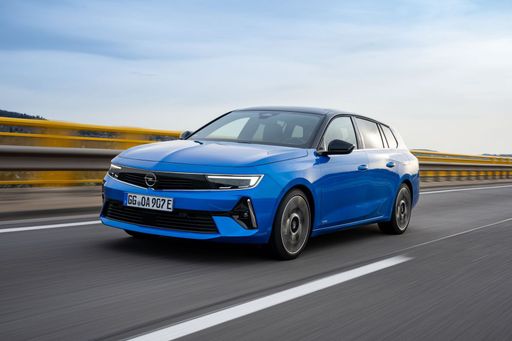
Vauxhall Astra Sports Tourer
Hyundai i30
The Hyundai i30 stands out in the hatchback segment with its sleek design and modern features. It offers a comfortable ride with a well-crafted interior that caters to both driver and passengers. With its emphasis on safety and technology, the i30 provides a balanced driving experience suitable for urban and suburban environments.
details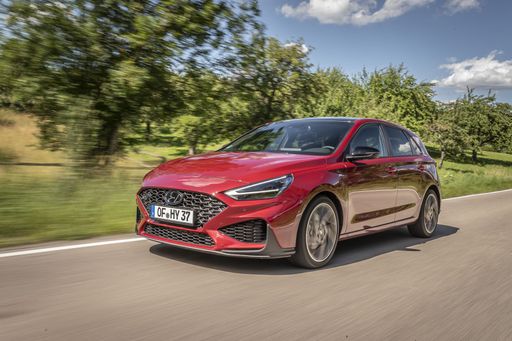 @ hyundai.news
@ hyundai.news
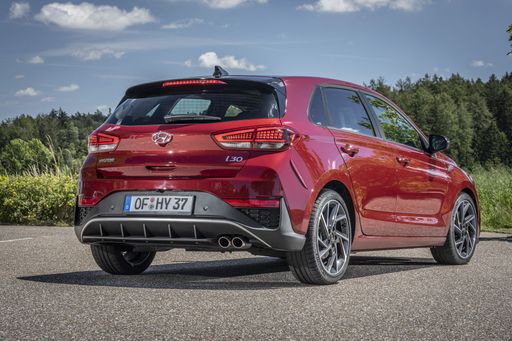 @ hyundai.news
@ hyundai.news
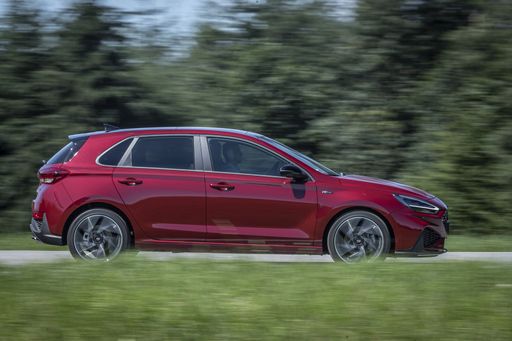 @ hyundai.news
@ hyundai.news
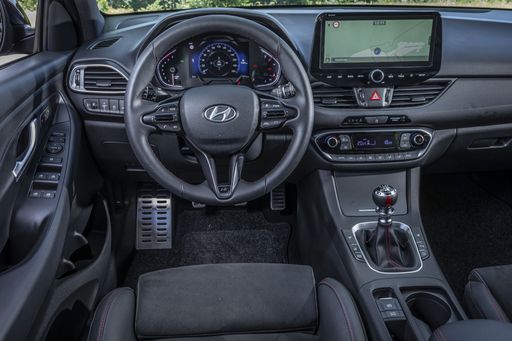 @ hyundai.news
@ hyundai.news
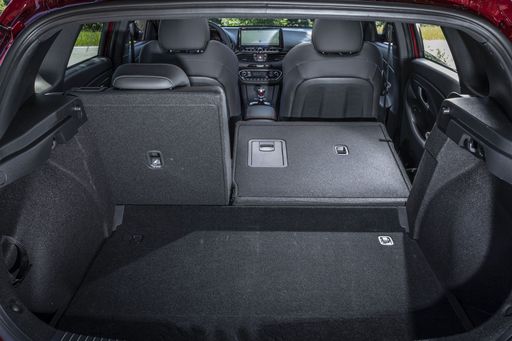 @ hyundai.news
@ hyundai.news
Vauxhall Astra Sports Tourer
The Opel Astra Sports Tourer is a stylish and practical estate car that offers a versatile blend of comfort and functionality. With its sleek design and spacious boot, it caters perfectly to families and those with an active lifestyle. The interior is thoughtfully designed, providing both driver and passengers with a comfortable and technologically enhanced experience.
details @ media.stellantis.com
@ media.stellantis.com
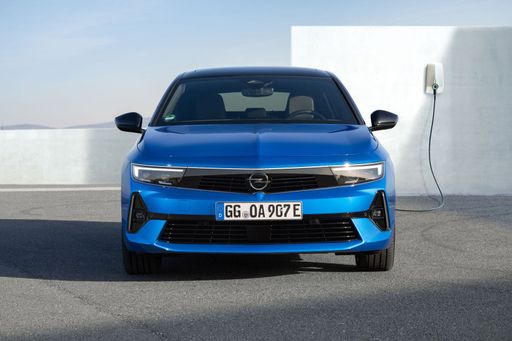 @ media.stellantis.com
@ media.stellantis.com
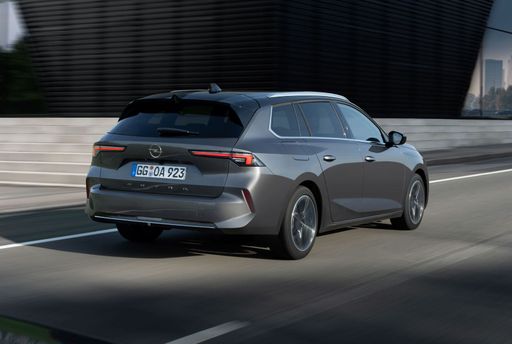 @ media.stellantis.com
@ media.stellantis.com

|

|
|
|
|
Costs and Consumption |
|
|---|---|
|
Price
24000 - 29300 £
|
Price
26500 - 41800 £
|
|
Consumption L/100km
5.7 - 6 L
|
Consumption L/100km
2.3 - 6.1 L
|
|
Consumption kWh/100km
-
|
Consumption kWh/100km
15.60 kWh
|
|
Electric Range
-
|
Electric Range
81 - 413 km
|
|
Battery Capacity
-
|
Battery Capacity
51 kWh
|
|
co2
130 - 136 g/km
|
co2
0 - 137 g/km
|
|
Fuel tank capacity
50 L
|
Fuel tank capacity
42 - 52 L
|
Dimensions and Body |
|
|---|---|
|
Body Type
Hatchback
|
Body Type
Estate
|
|
Seats
5
|
Seats
5
|
|
Doors
5
|
Doors
5
|
|
Curb weight
1291 - 1407 kg
|
Curb weight
1394 - 1760 kg
|
|
Trunk capacity
395 L
|
Trunk capacity
516 - 597 L
|
|
Length
4340 mm
|
Length
4642 mm
|
|
Width
1795 mm
|
Width
1860 mm
|
|
Height
1455 mm
|
Height
1443 - 1481 mm
|
|
Max trunk capacity
1301 L
|
Max trunk capacity
1553 - 1634 L
|
|
Payload
463 - 509 kg
|
Payload
413 - 497 kg
|
Engine and Performance |
|
|---|---|
|
Engine Type
Petrol, Petrol MHEV
|
Engine Type
Petrol, Diesel, Electric, Petrol MHEV, Plugin Hybrid
|
|
Transmission
Manuel, Automatic
|
Transmission
Manuel, Automatic
|
|
Transmission Detail
Manual Gearbox, Dual-Clutch Automatic
|
Transmission Detail
Manual Gearbox, Automatic Gearbox, Reduction Gearbox, Dual-Clutch Automatic
|
|
Drive Type
Front-Wheel Drive
|
Drive Type
Front-Wheel Drive
|
|
Power HP
100 - 140 HP
|
Power HP
130 - 225 HP
|
|
Acceleration 0-100km/h
9.6 - 13.1 s
|
Acceleration 0-100km/h
7.6 - 11 s
|
|
Max Speed
178 - 197 km/h
|
Max Speed
170 - 235 km/h
|
|
Torque
172 - 253 Nm
|
Torque
230 - 360 Nm
|
|
Number of Cylinders
3 - 4
|
Number of Cylinders
3 - 4
|
|
Power kW
74 - 103 kW
|
Power kW
96 - 165 kW
|
|
Engine capacity
998 - 1482 cm3
|
Engine capacity
1199 - 1598 cm3
|
General |
|
|---|---|
|
Model Year
2024
|
Model Year
2023 - 2025
|
|
CO2 Efficiency Class
D, E
|
CO2 Efficiency Class
D, E, A, C, B
|
|
Brand
Hyundai
|
Brand
Vauxhall
|
What drive types are available for the Hyundai i30?
Available configurations include Front-Wheel Drive.
The prices and data displayed are estimates based on German list prices and may vary by country. This information is not legally binding.
